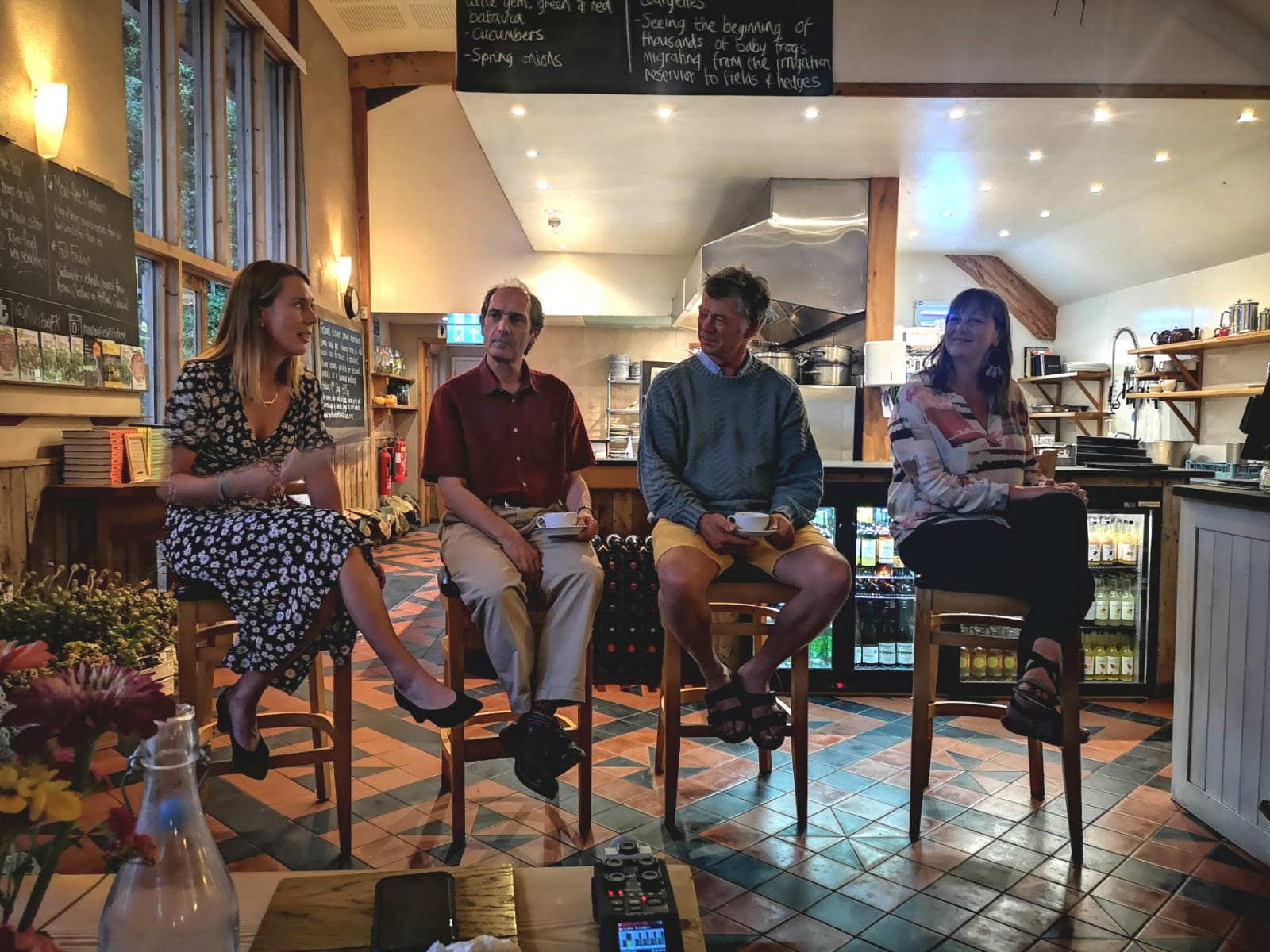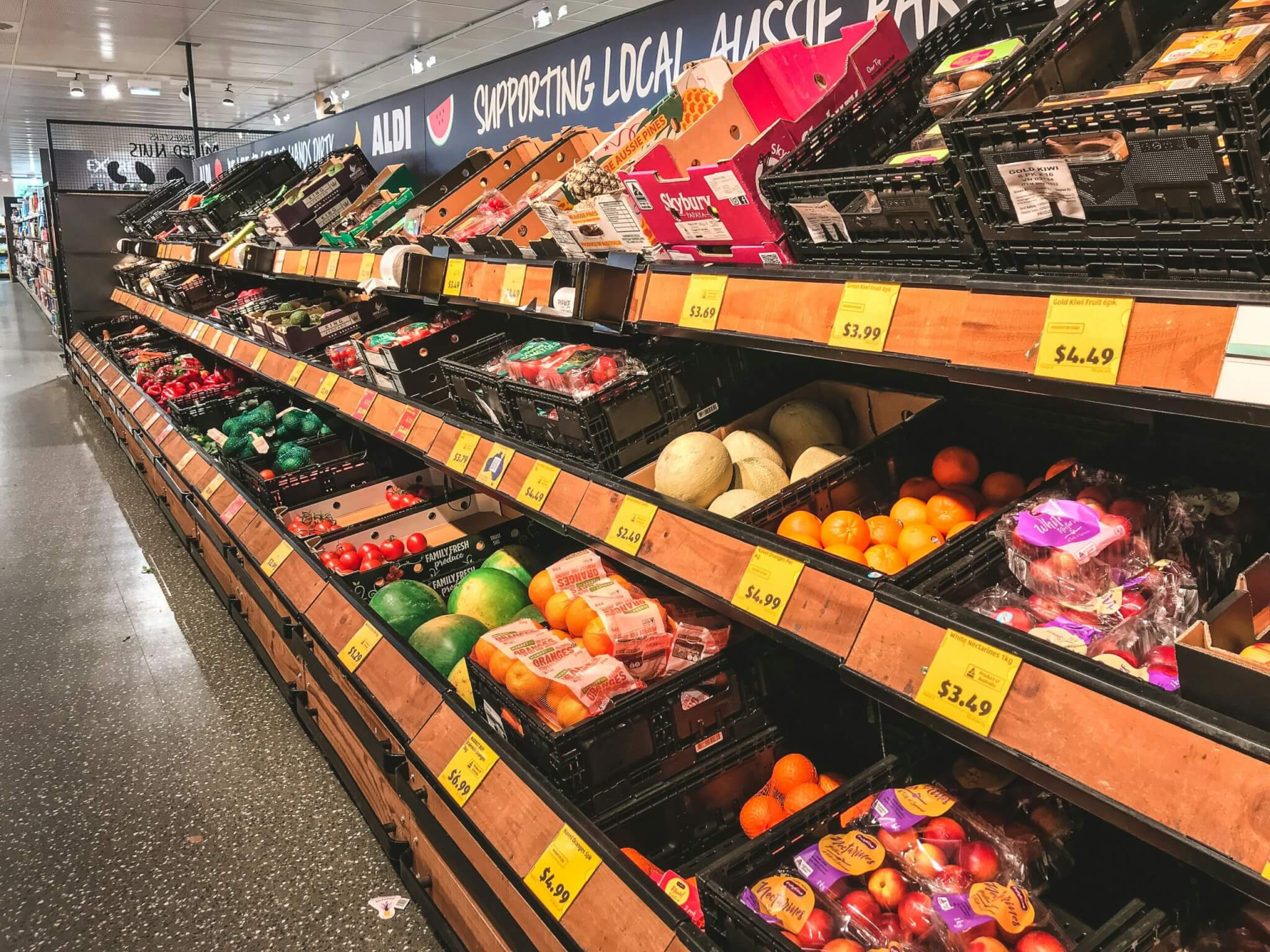How can alternative ownership of business be a force for good? That was the topic of discussion at a sell-out recent panel debate held at Riverford’s Field Kitchen restaurant and hosted by Wicked Leeks. Speakers included Guy Singh-Watson, founder of Riverford, and Dave Sproxton, co-founder of Aardman Animations, who gave the perspective of employee ownership, while director of the Onion Collective, Jess Prendergrast, spoke about the power of a community-owned business.
Thanks to a lively conversation among panellists, time ran out for the many thoughtful questions put forward by the audience. Here they are as a virtual roundtable discussion:
How can we inspire more businesses to adopt an alternative model?
Guy Singh-Watson (GSW): We need to persuade more owners of the non-monetary benefits of knowing you are part of the solution rather than perpetuating the inequality, unfairness and inefficiency of the shareholder value model. Don’t make loads of money and then give some to charity; let your business be the force for good itself rather than creating more problems that charities end up tidying up.
Dave Sproxton (DS): I think employee ownership needs to be talked about more on the media, in business programmes, magazine and in the press. Further there should be more discussions about where current company structures are leading us.
How easy is it to tell if a company is ethical?
GSW: Ownership structure is a good indicator, as is the humanity you experience from the staff you encounter; if they feel like they are just after the money or are disrespectful, chances are the owners are too. Ask the difficult questions and don’t be fobbed off with easy answers; look for solid facts not vague impressions created by clever marketing.
Be cautious of vague, unsubstantiated claims, discounts and young companies growing fast, they are almost always driven by investors hungry for short-term returns. Ethical cannot be short term. Longevity of trading and reputation is a fair (but clearly not infallible) test of being true to proclaimed values.
DS: There is no standard metric for ethics, but I guess if you ask about the values of the company (indeed do they even have any?) that should give an indication.
Jess Prendergrast (JP): It’s not hard, just listen to their leaders speak and see if their actions match their words.

Are there any current global leaders who you believe could turn things around in the way we need?
GSW: Caroline Lucas, Vince Cable, Ken Clarke in the UK… Business-wise, Julian Richer of Richer Sounds, Dale Vince of Ecotricity. And Greta Thunberg. Actually there aren’t many, which is a bit depressing. I am much more optimistic about change being driven by children hassling their (sometimes powerful) parents, opening their eyes to the shameful, criminal way our leaders are wrecking their children’s future.
DS: Most of our global leaders are schooled in the conventions of neo-liberal economics, so you are not going to get radical thinking from them, but places like Cuba and Costa Rica have other metrics to measure success rather than just GVA/GDP, and here in Bristol we have the Happy City initiative. So why is political success only measured in GDP, which we know doesn’t get spread evenly around society?
JP: Currently, no. Those at the top now are too institutionalised, too invested, too blinkered (not necessarily their faults but a consequence of their status). We need a new generation. It is the task of current leaders to have the morality to step aside, to recognise that they cannot fix the problem alone and to believe that others can do better.
How do we create change in a company when we do not own it?
GSW: Too often those wanting positive change get branded as troublemakers. You need to try and build a consensus and support base. There is an increasing awareness of the importance of ‘employer brands’ in attracting the best talent and generating success, plus more and more people want to work for companies that share their values, so you do have power. Sites like glass door have the potential to cut through the bullshit and force companies to act on the inside (reality) in a way which is consistent with what their marketeers project to the outside world.
DS: Lobby the shareholders and make a noise. It’s been interesting to see the pressure being put on the places like the RSC and Tate Modern for accepting sponsorship from BP. In terms of smaller companies, it’s a matter of forming a collective voice through a work council or similar. You can always go on strike. The loss of the trade union movement (smashed pretty well to bits by Margaret Thatcher) hindered robust discussions. The gig economy is leaving people almost voiceless.
We now have a generation who don’t understand the value of the unions and their collective voice. It wasn’t necessarily all good (too many strikes for some), but they put the people and their livelihoods front and central and made the owners and directors more accountable. The few unions left may well have powerful voices in the future and any smart company needs to find a mechanism for hearing the voice of its people otherwise it will lose their goodwill quite quickly when sticky times are met.
What would you ask of us/your communities to help make a positive impact?
JP: Everyone should always remember the vulnerable in everything they do. Those of us with privilege, however gained, and in whatever ways, should not judge nor disregard the challenges and suffering of others. We are all united by ties of humanity that bind us together in this messy world, and it is our job to care for our world, our people and our planet.
Is it feasible for every business to be a force for good, e.g. oil companies?
GSW: Yes. Businesses are made up of people who must take responsibility for their actions. Most oil companies call themselves energy companies and trumpet a few windmills. They are well-financed and technically proficient; they just need to use that proficiency and money in different ways.
DS: I’m sure all companies would say they are satisfying a demand and are therefore are doing good work. Oil companies could make very strong arguments for doing good, allowing families to meet, goods to be transported to people, aid delivered etc. Things have to be transported and that’s not going to be stopped. Can they do it in a less damaging way? Almost certainly. Could they have invested more in sustainable energy systems in the past? Absolutely. Arms manufacturers always claim to be helping to keep the peace. It’s all a matter of the lens you look through. But if you questioned the ethics and aims of the companies, you might see something very different.
JP: Yes, if the ownership model of businesses changed so that people and the planet were prioritised over profit, then any company in the world could be a force for good. It is not the activity of the company that matters intrinsically, it is the means it uses and the end to which its efforts are put that determine what good looks like.

How will Brexit affect alternatively-owned businesses?
GSW: I am a Remainer but I suspect Brexit could help us find local solutions to our problems. Alternative ownership is normally more embedded in communities and better placed to deliver locally.
DS: In times of crisis, people tend to hunker down and find ways to protect themselves. Employee-owned companies are more resilient than others, can drive their own destiny and tend to last longer, so it may become a bigger thing if people fear Brexit could damage their company’s prospect. I think we will see more alternative models for company structures as people look more towards their local and circular economies rather than international markets, especially for smaller companies.
JP: It will make it even clearer how badly the prevailing economic system is failing our communities and planet – it is the vulnerable who will feel the brunt of the damage, and that will encourage more and more of us to seek a better way.










0 Comments